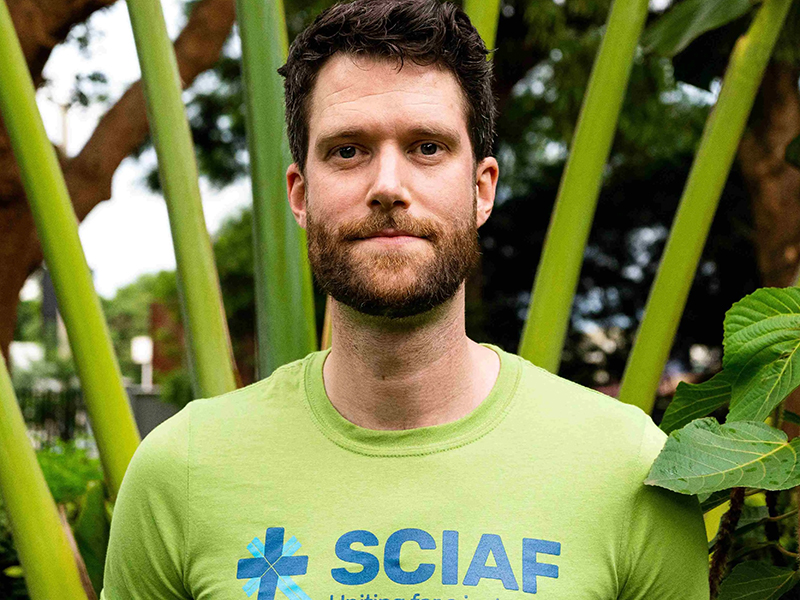Dr Ben Wilson: "reject the short-termism and self-centredness that drove the climate crisis in favour of long-term politics for the common good"
Three years on since world leaders and activists from every corner of Earth descended on Glasgow for Cop26, climate change is in the headlines again. This time for all the wrong reasons.
It’s been a while since a mass climate protest was covered in the evening news, or a major new positive development in climate policy was introduced that has captured the public’s imagination. Climate change didn’t really figure in the media coverage of the UK general election earlier this year, even though voters still see it as a priority.
Here in Scotland, however, climate change policy led to the downfall of a first minister, after an embarrassing climb down by the Scottish Government on its world-leading climate commitments following years of inaction.
The climate news we have been seeing on our TV screens is exactly the opposite of what we should be seeing – images of lethal floods in Spain and central Europe, catastrophic droughts across Africa and devastating hurricanes in central America and the southern US. Because of years of inaction, the climate crisis is now very much already upon us, and its already wreaking havoc.
These events need to be a wakeup call for all of us. At Cop29 in Baku, starting next week, this reality must strengthen the resolve of world leaders to get their act together and start treating this like the emergency that it is.
At the top of the agenda in Baku will be expectedly fraught negotiations to establish a new global financial package for climate action under the Paris Agreement. The so-called “New Collective Quantified Goal” on climate finance will dominate the discussions, with countries from the global south demanding that a significantly larger package of support can be agreed to help them transition to post-carbon economies, adapt to and recover from climate impacts.
The pre-existing goal of mobilising $100 billion per year by 2020 was set first back in 2009, and since then rich countries have been promising to set an increased target by 2025 that would truly meet the scale of the need. With some global south countries proposing a target of £1-1.3 trillion annually and the global north remaining tight-lipped on what figure they have in mind, the stage is set for a deeply tense and delicate negotiation.
A positive outcome that everyone can get behind will be vital to the planet achieving its climate goals and prevent a freefall into global warming, which would make events like the recent floods in Spain a devastatingly regular occurrence.
One must only look at the images from Spain in recent days to understand why agreeing to this new global financial goal is so important. This is the money that will ensure 'developing' economies are able to invest fully in renewable technologies, build defences to climate impacts and support communities already reeling from the after-effects. This new goal is essential in making sure that the global community finally gets on track to reducing emissions to safe levels and making such that the planet we live in remains liveable, especially for the poorest.
From the Scottish Government perspective, this Cop will be the first since its humiliating u-turn on its world-leading Climate Change Act. One of the challenges Scotland faces is that in presenting itself as a climate leader on the international stage, it has the burden of leadership to get things right. The Scottish reputation internationally on climate has taken a major hit this year, but there is still hope for Scotland to bounce back. By going to Cop prepared to own up their own failings, promise to learn from their mistakes, keep fossil fuels in the ground and truly get on track to net-zero by at least 2045, the Scottish Government can recover from this reputational hit, and ultimately achieve an even more robust and just transition.
However, achieving that is going to require a massive surge in ambition, in delivery and in leadership. John Swinney won’t be at Cop29. We can only hope that he’s staying home to work on the forthcoming Energy Strategy, Just Transition and Climate Change plans.
Future generations rely on every leader of every country putting this to the top of their priority list, rejecting the short-termism and self-centredness that drove the climate crisis in favour of long-term politics for the common good.
Dr Ben Wilson is the public engagement director of SCIAF (Scottish Catholic International Aid Fund) and will be representing the humanitarian charity at Cop 29 in Baku, which starts on Monday (11 November).








Turning in to a boondoggle